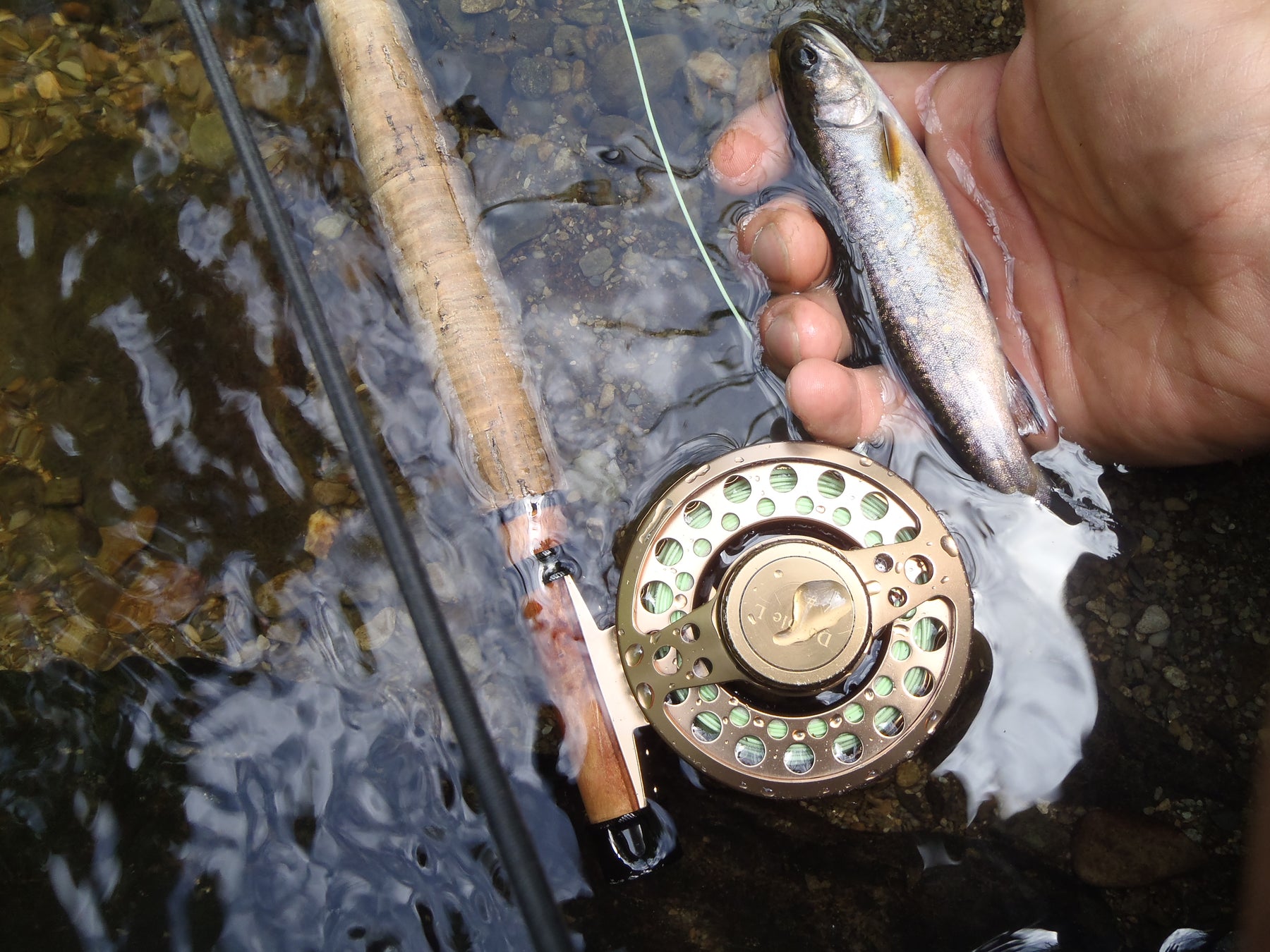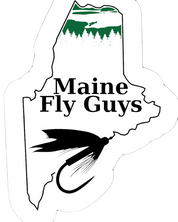
Who Owns The Water?
By Greg LaBonte
As fly anglers, we are always looking for the next great stretch of water, ever restless to find an untamed section of river or an untouched remote pond. Here in Maine, we have extraordinary laws protecting fly fisher’s rights to water. Several protective examples include the Great Pond Act and Maine Principles of Ownership Along Water Bodies (Hermansen and Richards, 2018). First, the Great Pond Act states than no person on foot shall be denied access or egress over unimproved land to a pond greater than 10 acres. However, this provision does not apply to access over the land of a water company or a water district when the water is utilized as a source of public water. Well isn’t that interesting. I get the public water source, but a water company? Our first glitch in the system. Secondly, the Principles of Ownership Along Water Bodies is an overview of laws pertaining to riparian zones (land areas adjacent to waterbodies) and ownership of water. Luckily, the state of Maine has made it law that streams and rivers from the normal high-water mark from bank to bank are traversable for all (Figure 1). Meaning, most of the year, banks and the bed of any river are available for all to enjoy, whether that be hiking, kayaking, or fishing. You may not be able to cross private property to get to the spot you want, but once in the river, you’re good to go up and down as far as you want! So, in turn, nobody in Maine can own the actual water, except for water companies. Maine has been extremely liberal comparatively to the rest of the world when it comes to laws regarding water access, and as a fly fisherman, thankfully so.

Waterfront access laws in other countries and even other states is convoluted at best. In New Zealand, a person may own the riverbed and restrict access for fisherman. However, more common on streams and rivers, is what’s known as the Queen’s chain, which is a 20-meter strip of land along the water source to provide public access. Worse than New Zealand is Canada. Oh my, things can get confusing fast up there! In Canada, if a water way is navigable, you can own property on both sides of the river, but 3 meters on each side belongs to the Crown, known as “Crown Land”. Not bad right? Well, if it’s a slough lake or pond and you own the area surrounding the entire water body, then you can restrict access to the lake or pond, unless there is a year-round inlet or outlet, which would be considered a navigable path. So, fly anglers looking to fish remote ponds, may or may not be able to get in, depending on inlets, outlets, and ownership of the surrounding riparian zones. Now, I know what you’re thinking, what is a navigable waterway? Luckily, the Canadian courts have decided! In International Minerals & Chemical Corp. vs. Canada, the Cutarm Creek in east-central Saskatchewan was under investigation to see if it was a navigable waterway. For most of the year, the river was said to have limited flow with almost no defined boundaries. The Canadian court defined a navigable waterway as one where the water body connects places that have reasonable appeal to the public as a route to be travelled. Leave it to the Canadians to make such a friendly ruling. Since the Cutarm Creek was basically a trickle for most of the year, it was not considered a navigable waterway and International Minerals & Chemical Corp. was allowed to restrict any access they saw fit on the river, even though at times in the year, it was navigable. Which leads me to my ultimate point, should anyone be allowed to own water in any form?

Now, if you build a small pond yourself, stock it with fish, sure, you can own it and restrict access. You would have to spend an ample amount of money to do so. I am talking about naturally formed water bodies. Water, unlike land is a constantly moving entity. How can a water company in Maine lay claim to water and restrict fishing (the holiest of acts) on any piece of water? To me, water is just like air, cycling, constantly moving, rising and falling, constantly interchanging with the environment. Even in an isolated lake, water is added through ground sources and rain storms and excess water is drained off, typically following the lay of the land. Imagine, if someone tried to lay claim to an area of air? Would you not look at them with confusion? Well, for me, that’s how I feel when I hear that someone can restrict access to water.
I understand that with access comes unnecessary evils, like littering, habitat degradation, and illegal activity. Trying to regulate or enforce law infractions is incredibly difficult, particularly in Maine where there are so many different water bodies. So, I regress, maybe water access should be restricted to effectively remove unnecessary evils. However, water is still a moving entity, so a river section is restricted, should input sources of water be restricted as well? Should an entire mountain be restricted from public access, not because of ownership, but because of its contribution to a waterbody? As you can see, restricting water access becomes a slippery slope quickly.
I’m glad that Maine has liberal laws regarding who can restrict what when it comes to water. Maine is one of the last strongholds in the US as far as pristine water is concerned. With such liberal access laws, you would think otherwise. I suppose federal regulations such as the Clean Water Act (which is under attack) should be attributed for the cleanliness. Hopefully, from an angler’s point of view, Maine’s waterway access laws don’t change for the foreseeable future, because with ownership of water, comes the ownership of all biological life inhabiting the water.
This article has really only pertained to fresh water, you can imagine the intricacies that can be pondered regarding the ocean, but that is a story for another day.
Knud E. Hermansen & Donald R. Richards, Maine Principles of Ownership Along Water Bodies, 47 Me. L. Rev. 35 (2018).
Available at: https://digitalcommons.mainelaw.maine.edu/mlr/vol47/iss1/3
